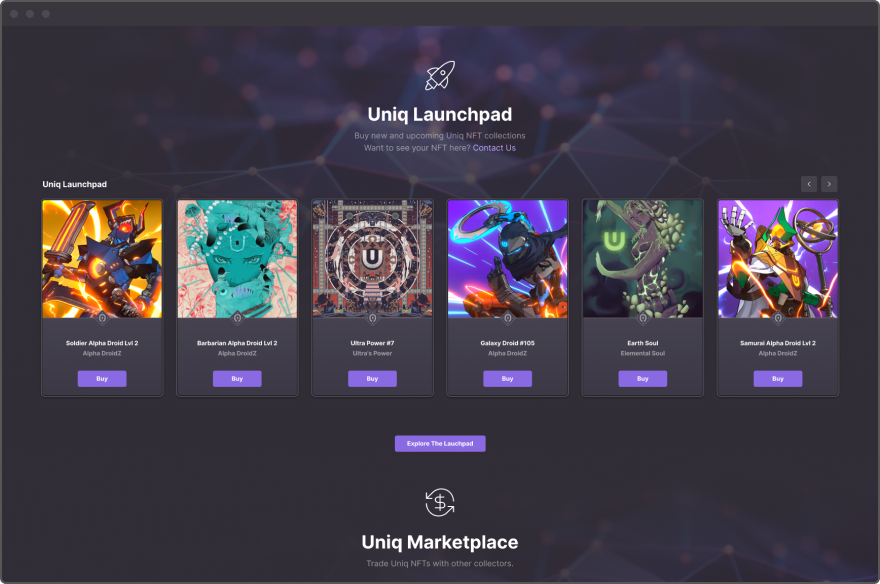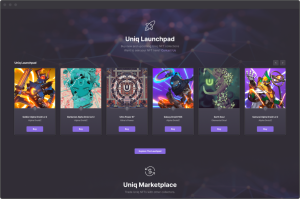Join Our Telegram channel to stay up to date on breaking news coverage
NFT and Web3 marketplaces have been gaining in popularity over the last couple of years, with new entrants competing for users but also carving their own unique niche sin a space that’s still new and exciting.
In this context, later this month, the venerable Web3 gaming company Ultra announced that it will debut its Ultra Games marketplace, which will feature a unique feature: a secondary market where users can resale digital games they’ve already bought.
What is Ultra?
In their own words,
Ultra is the first entertainment platform that brings games, digital assets, tournaments, and live streams to one place, all easily accessible through a single login.
In addition, due to the on-chain digitization abilities they provide, it enables users to have true ownership of their goods.
All the content you buy from Ultra, such as games, DLCs, and virtual items, are on-chain digital goods you truly own. On Ultra you’re in control of your assets as though they were physical items. These assets can be sold, traded and given away to your friends within Ultra, or outside of Ultra, through 3rd party marketplaces and mobile apps.
According to the business, the new digital PC gaming shop will debut with 60 to 70 games, including Web3 games like Cards of Eternity, Cross the Ages, and MARS4. However, it will also include conventional “Web2” games devoid of NFT or tokens, such as Syberia, Lords of the Fallen, and The Walking Dead: The Telltale Definitive Series.
The startup’s own Ultra layer-1 network, a clone of the EOS blockchain, which has been under development since 2018, serves as the foundation for Ultra Games, which will debut on April 25. Since then, goods like the Ultra Wallet, upcoming Ultra Arena esports platform, and Uniq Marketplace for NFTs have helped the Ultra gaming community steadily grow.
Intriguingly, due to tokenized license rights, Ultra titles will permit players to resell bought titles via the Uniq Marketplace. Despite the fact that game producers have the option to reject this initiative, Ultra Co-CEO Nicolas Gilot said in an interview with publication Decrypt that he thinks there is a strong case for game developers to permit the second-hand selling of games.
🔒➡️🔓📢 pic.twitter.com/Alj5nsKr8x
— Ultra (@ultra_io) April 4, 2023
Game producers have the chance to take advantage of [the secondary market], according to Gilot, who also noted that studios can establish an initial no-resell time (for example, for three months after debut), a minimal resale price point, and the revenue percentage that it automatically gets.
Brian Fargo, a seasoned game creator and co-founder of the blockchain startup Robot Cache, has also dabbled with the resale of digital games using its own IRON currency. Some of the exact same games that Ultra Games will give users are listed in the Robot Cache marketplace.
Users will be able to join up for Ultra Games using their email and phone number even though they are not Web3 residents. Under a Web2-friendly UI, crypto components (like your wallet address) are concealed, but users can still access them if they so choose. Additionally, Ultra Games doesn’t charge customers for network gas when they trade.
In famous Web2 games like Counter-Strike: Global Offensive (CS:GO), where individual items have sold for over $100,000 each, digital artifacts and assets are already well established. However, user-owned NFT assets allow for the potential of cross-game interoperability while such assets are usually restricted to a single game or platform.
What are the opportunities provided by the Web3 metaverse?
We hear a lot about Web3 these days, but why exactly is it so revolutionary? According to a paper by OliverWyman on this concept,
The Web3 metaverse represents an opportunity for a reset that could fix some of the well-known problems of the Web2 internet, including data mining and concentration.
It is an example of a brand-new, decentralized framework that combines simulated environments with brand-new forms of currency and properties using blockchain technology. In comparison to the current internet, this paradigm guarantees more possibilities for both creators and users and gives them a bigger part of the rewards from these virtual worlds. The amount of money flowing into the business suggests a promising future: Over $10 billion was generated by metaverse-related businesses in 2021 alone.
Related
Best Wallet - Diversify Your Crypto Portfolio
- Easy to Use, Feature-Driven Crypto Wallet
- Get Early Access to Upcoming Token ICOs
- Multi-Chain, Multi-Wallet, Non-Custodial
- Now On App Store, Google Play
- Stake To Earn Native Token $BEST
- 250,000+ Monthly Active Users
Join Our Telegram channel to stay up to date on breaking news coverage


